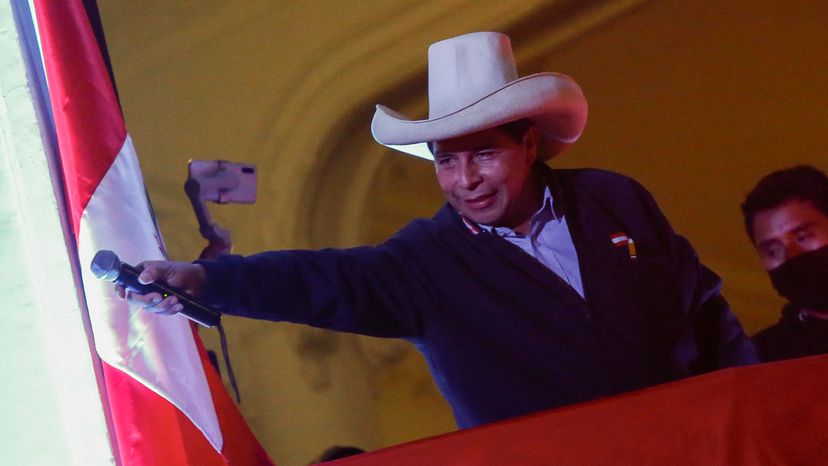RIO DE JANEIRO, BRAZIL – 66% of Peruvians affirmed, in a survey by the Institute of Peruvian Studies (IEP), that the leftist Pedro Castillo won the presidential runoff in Peru, and 53% said that Keiko Fujimori’s claim of fraud is a strategy to avoid recognizing her defeat.
Only 25% of those polled said that right-wing candidate Keiko Fujimori had won the runoff, while 9% said they were undecided, according to the poll published by the newspaper La República.

According to the final tally of the vote on June 6, Castillo obtained 50.12% of the votes, while the daughter of former president Alberto Fujimori (1990-2000) obtained 49.87%, a difference of a little more than 44,000 votes in favor of the rural teacher.
Regarding the accusations of “systematic fraud” defended by Fujimori and her supporters, 53% of those polled responded that they are not right because “it is a strategy not to recognize the results”, compared to 31% who supported them and added that there have been “irregularities in the voting tables”.
Another 12% believe that they are somewhat right but that it will not affect the result, while 4% do not know or have no opinion.
NO EVIDENCE AND NO PROCLAMATION
So far, there is no reliable evidence of the existence of this “fraud”, and international observers, electoral bodies, and data analysts coincide in pointing out that there were no relevant irregularities and, in any case, nothing beyond what is usual in any other electoral process.
However, the winner has not yet been proclaimed because the electoral juries are mainly resolving the nullity requests and appeals presented by Fujimori’s party.
The IEP poll revealed that 69% disapprove of Fujimori’s attitude after the second round, while 29% support her and 2% remain indifferent.
The sectors with the greatest rejection of the former congresswoman’s attitude are the south (80%) and east of the country (73%), as well as rural areas (76%) and the youngest voters, between 18 and 24 years of age (74%).
However, the attitude of Castillo, who in practice proclaimed himself unofficially as president-elect, has also been rejected by 49% of those polled and received the support of 47%.
EXPECTATION FOR CHANGES WITH CASTILLO
Among those who voted for Castillo, 51% said that they did so because he offered the country a change and 25% because they do not want Fujimorism to return to power.
Likewise, 14% said that he would be concerned about those who have the least and 10% because they trust him.
In turn, 55% of Fujimori voters voted for her because they do not want the left or communism to come to power, 20% because she assures stability and order, and 14% because she offered the change the country needs.
CONFRONTATION OF ANTI-VOTES
Patricia Zárate, head of Opinion Studies at IEP, commented that the high percentage of disapproval of Fujimori responds that 53% of those surveyed maintain that she is not right in her claims and that they are a strategy not to recognize the results.
Furthermore, Zárate added that the “antivoto” is much stronger in Castillo’s case than in Fujimori’s, and for this reason, “it is difficult to build in denial”.
“That is why the acceptance of results shown by the majority of those polled seems to be the way to continue facing the pandemic and the bicentenary” of the country’s independence, said Zarate.
The IEP survey was carried out between June 17 and 20 to a sample of 1,210 telephone respondents nationwide, with a confidence level of 95% and a margin of error of 2.8%.

